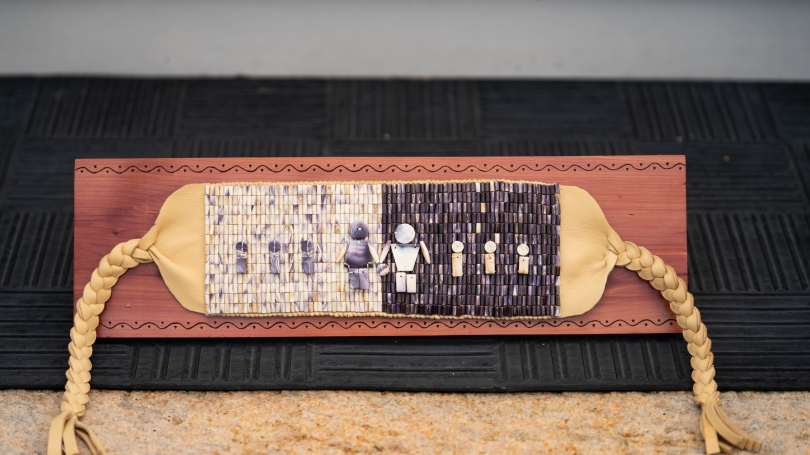Samson Occom was a member of the Mohegan tribe and believed to be a direct descendant of its great chief Uncas. He was born near colonial New London, Connecticut in 1723, and was converted to Christianity at age eighteen during the Great Awakening. At twenty, he went to study for four years at the Lebanon, Connecticut, home of Congregational minister Eleazar Wheelock. Occom was a remarkable student and scholar, and became one of the first Native writers published in the colonies, while always maintaining his identity as a Mohegan and his commitment to the welfare of Native peoples in the Northeast. For the next twelve years, he served as an effective educator to the Montauk Indians of Long Island, and was ordained a Presbyterian minister in 1759. When he returned to Mohegan, he became an eloquent and popular spiritual leader and teacher, also supporting the Mohegan Tribe's lawsuits against the Colony of Connecticut, which threatened to take ownership of ancestral lands.
Occom also supported the efforts of Moor's Indian Charity School to educate Native children from the region, traveling across England and Scotland from 1766-68, preaching to rapt audiences, meeting leading figures, and raising money for the school. Occom was fantastically successful: he raised more than £12,000 (about $2.4 million today), including support through the Society in Scotland for Propagating Christian Knowledge. Upon his return, however, he was disappointed to find the school relocated to a royal grant in New Hampshire and renamed Dartmouth College, which the funds he raised helped to establish. Occom then became an outspoken advocate for Indian rights, a conviction reinforced by the decision in 1773 of the Mason Land Case against the Mohegan Tribe. To address the Mohegan Tribe's poverty and powerlessness, Occom helped found Brothertown, formed from various tribes, which eventually settled in Oneida Country in upstate New York. Occom moved there with his family in 1789, leaving a portion of the Mohegan Tribe in Connecticut. Occom died in 1792 in New Stockbridge, New York. As the Mohegan Tribal website concludes: "His legacy for the Mohegan people who remained in Connecticut was a reputation for being Christianized, which helped them avoid later relocation."
Occom never set foot at the school that became Dartmouth College, and between 1769 and 1970 Dartmouth graduated only 20 Native students. It wasn't until 1970 that then-President John Kemeny "sought to turn this point of pain for Occom and, by extension, the Native community, into a point of pride," according to Dartmouth President Hanlon. Part of this refocus was the founding of what is now Dartmouth's Department of Native American and Indigenous Studies in 1972; more than 1,200 Native American students have graduated from Dartmouth since then.
Originally published by the Dartmouth Library on conjunction with the Repatriation of Samson Occom's Papers to the Mohegan Tribe
